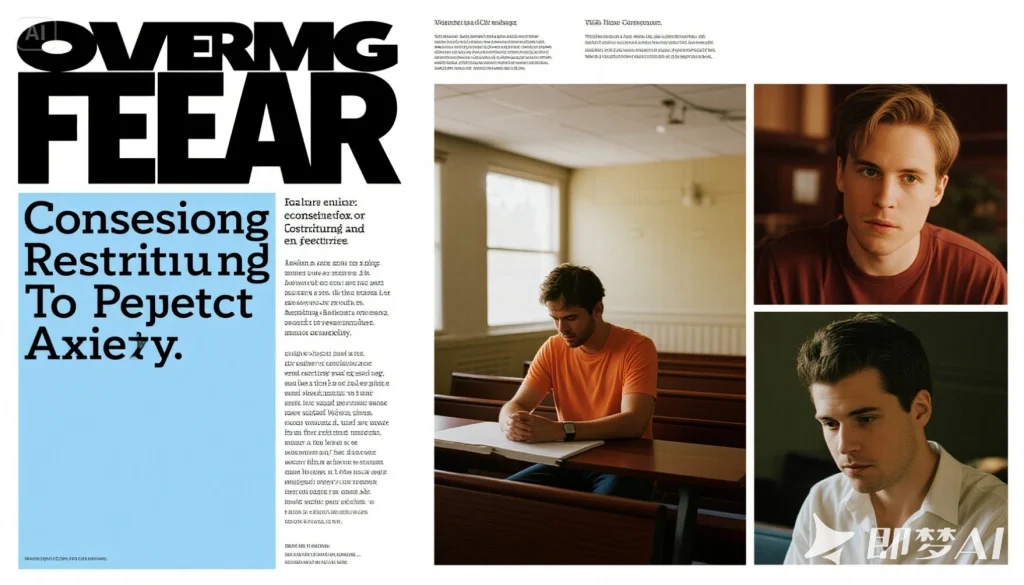Physical Address
304 North Cardinal St.
Dorchester Center, MA 02124
Physical Address
304 North Cardinal St.
Dorchester Center, MA 02124

In the intricate dance of romance, few moments are as nerve – wracking as the act of confessing one’s feelings. The fear of rejection looms large, often paralyzing individuals on the precipice of expressing their true emotions. This article delves into the roots of this fear, supported by psychological research, and presents effective cognitive restructuring methods to navigate the treacherous waters of potential rejection.

Social rejection is an innate fear hard – wired into our psychological makeup through evolution. As a highly social species, our survival has long depended on our ability to be part of a group. Dr. Kelsey Zimmermann, a researcher at the School of Psychology, UNSW Science, notes that “social rejection is an innate fear that we’re programmed on an evolutionary level to avoid.” Our brain perceives rejection as a threat to our social standing, triggering a natural aversion similar to that of spiders or snakes. A study published in the journal Social Cognitive and Affective Neuroscience found that social rejection activates brain regions associated with physical pain, such as the anterior cingulate cortex and the insula. This physiological response highlights the significance of the fear of rejection in our psychological landscape.
Negative experiences in the past can also fuel the fear of rejection. Prior rejections, especially during critical developmental periods like adolescence, can have a lasting impact. For instance, a study in the field of developmental psychology showed that adolescents who experienced social rejection were more likely to develop social anxiety in adulthood. Early life experiences, such as rejection from parents, can also shape our expectations in romantic relationships. Dr. Zimmermann states, “experiencing rejection from a parent can profoundly impact every future interpersonal relationship. It’s arguably the most crucial relationship in our life that teaches us how all other connections are formed.”

The fear of rejection often leads to inaction when it comes to confessing one’s feelings. People may avoid 表白 altogether, missing out on potential romantic opportunities. A survey conducted among young adults found that over 60% of respondents admitted to refraining from expressing their romantic feelings due to the fear of being rejected. This fear can create a self – fulfilling prophecy, as the lack of action prevents the possibility of a positive outcome.
The fear of rejection can also distort our perceptions of the situation. We may overestimate the likelihood of rejection and the negative consequences it will bring. In a psychological experiment, participants were asked to predict the outcome of a hypothetical romantic confession. The majority of them predicted a higher probability of rejection than what actually occurred in real – life scenarios. This overestimation of risk can further deter individuals from taking the leap and confessing their love.

The first step in cognitive restructuring is to identify the negative thoughts that fuel the fear of rejection. These thoughts may include “I will definitely be rejected,” “If I’m rejected, I’ll be a failure,” or “I won’t be able to handle the rejection.” By becoming aware of these automatic negative thoughts, we can begin to challenge them. For example, keep a thought diary for a week. Every time you feel the fear of rejection creeping in when thinking about confessing, write down the exact thought that crossed your mind. This will help you recognize patterns in your negative thinking.
Once identified, these negative thoughts need to be challenged. We can use rational arguments to counter them. For instance, if the thought is “I will definitely be rejected,” consider the fact that not all confessions result in rejection. Look at the experiences of friends or acquaintances who have had positive outcomes after confessing. A meta – analysis of studies on romantic confessions found that approximately 40% of confessions led to a positive response. This data can serve as evidence against the irrational belief of certain rejection. Another way to challenge these beliefs is to ask yourself, “What is the worst – case scenario if I am rejected?” Often, the actual consequences are not as dire as we imagine.
Reframing the situation is a powerful cognitive restructuring technique. Instead of seeing rejection as a personal failure, view it as an opportunity for growth or as simply a matter of compatibility. Dr. Zimmermann suggests, “there are many instances where it’s not about you as a person. It’s about simply not being the right fit for a friendship, a relationship or a job.” If you are rejected after confessing, think about what you can learn from the experience. Maybe it was a matter of poor timing or a mismatch in interests. This reframing can help reduce the sting of rejection and make it easier to move forward.

Albert Ellis, the founder of rational emotive behavior therapy (REBT), had a debilitating fear of asking women out on a date. He realized his fear was irrational and decided to confront it head – on. He forced himself to ask 100 women to go out with him. Although he didn’t get a date from his initial efforts, he managed to overcome his fear of rejection. We can follow a similar approach by taking small steps. Start by having more casual conversations with the person you like, gradually building up your confidence. You could also practice your confession with a friend in a mock scenario. This rehearsal can help you feel more prepared and less anxious when the real moment arrives.

Building resilience to rejection is crucial. Understand that rejection is a normal part of life, and everyone experiences it at some point. By exposing yourself to small rejections in other areas of life, such as applying for a job and not getting it, you can gradually build up your tolerance. Each time you face and overcome a small rejection, you become more resilient and better equipped to handle the potential rejection that comes with a romantic confession.

In conclusion, the fear of rejection is a common but surmountable obstacle in the pursuit of love. By understanding its roots and applying cognitive restructuring techniques, we can transform our mindset and find the courage to express our true feelings. Remember, the rewards of a successful confession far outweigh the risks of potential rejection.